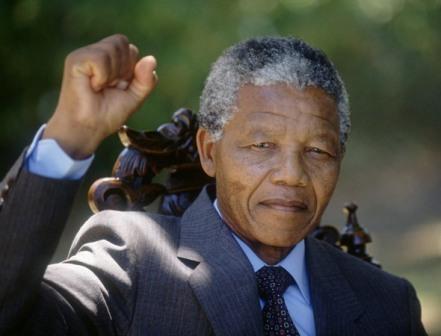The Nobel Peace Prize winner had been at ease with his own mortality for many years.
“Death is something inevitable. When a man has done what he considers to be his duty to his people and his country, he can rest in peace. I believe I have made that effort and that is, therefore, why I will sleep for the eternity,” he said in an interview for the 1994 documentary, Mandela.
The man many in South Africa refer to by his clan name “Madiba” was sentenced to life in 1964. He spent most of his imprisonment in Robben Island, a notorious maximum security facility on a small island off the coast of Cape Town.
Such was the apartheid regime’s animosity towards Mr Mandela that South African prime minister John Vorster famously said in 1975: “Anyone who wants to talk to me on the basis that Mandela is the leader of black South Africa can forget it.”
In the 1980s, Mr Mandela’s incarceration became a central theme in the global campaign against apartheid as defined by the slogan “Free Nelson Mandela” which was incorporated into several protest songs.
In 1990, the government of then president FW de Klerk responded to growing international pressure by releasing Mr Mandela and lifting the ban against the ANC. Mr Mandela and Mr de Klerk were later jointly awarded the Nobel Peace Prize.
After his release, Mr Mandela led the ANC in the multi-party negotiations that resulted in South Africa’s first multi-racial elections. Elected president with an overwhelming share of the vote, he went on oversee the country’s delicate transition from minority rule and apartheid.
As Mr Mandela outlined in his autobiography Long Walk to Freedom, his prison experience helped him reach the conclusion that there could be no democracy without reconciliation. He earned plaudits for his leadership and his willingness to reach out to his former opponents. His lack of bitterness over the long years he spent in jail drew admiration from across the world.
After stepping down as president in 1999, Mr Mandela continued to travel the globe as South Africa’s highest-profile son, meeting leaders and working on conflict resolution elsewhere in Africa.
The fight against Aids was a major concern for him, particularly after his son Makgatho died of the disease in 2005.
Mr Mandela also formed The Elders, a group of prominent figures including Ireland’s former president Mary Robinson, to address some of the world’s most intractable problems.

